The Blackwell Franchise: Joey Uses Rosangela Part 3 (3400 mots)
3- Destroying Rosa Step by Step
At the end of Deception, Rosa is done for. The Gavin/Joey fight leads to her final renunciation to any hope to have a life for herself, because she has to give up on any of her natural and spontaneous yearnings in order to survive.
Just like Bruce Wayne can be swallowed by Batman, Rosa was swallowed by “The Bestower.” The girl that we met ready to start her life at the beginning of Legacy now most certainly feels like the entire world despises her. She feels ugly and uninteresting, that she is a failure. She wishes nobody would look at her, she wishes that she was left alone in a corner and that everybody would forget about her existence.
Just like Mary Meehan, the ghost who haunts the ruins of a collapsed building. Mary was a young actress who got strongly humiliated by scathing reviews and died of cold in an abandoned building where she was hiding amongst homeless people. To enter this building Rosa has to read the words: “Revolt, reclaim, reject, rebuke, retaliate.”
If I draw this comparison between Mary and Rosa, it’s because from a narrative point of view the ghost stories have to bring something to the main plot which is Joey and Rosa’s story. The story of a spirit guide and his/her host cannot just be an addition of short stories that aren’t related to a main thread and which doesn’t mean a thing on the level of the main characters, who need to have character arcs too. The ghost stories are interesting in themselves but they are here because they make the main characters evolve and are part of a deeper narrative.
Each time Rosa brings a ghost to the white light, it says “it’s fine.” She is conditioned to accept the death of feelings, qualities and values as if nothing had any importance. When she watches Mary go through the light, she identifies with her. She learns that “if I die, it’s fine.” Or, more precisely: “if the part of me that wanted to be a successful artist dies, it’s fine.” Each Blackwell episode represents the destruction of an aspect of Rosa’s personality that which brings her one step closer to welcoming death with open arms.
-----------------------------
Legacy is about Rosa’s birth as an individual. She was adopted by her aunt who became crazy shortly afterwards and remain for twenty years. Rosa necessarily desired Lauren’s death because it’s horrible to know that while you’re living your little life, someone you love is in constant pain. So, I think it is safe to say that Rosa is relieved when Lauren dies and that it’s only at this moment that she feels that she can truly start her life.
“I can now live” is a thought or a feeling that is directly linked to libido. The desire to be happy and live your life for yourself, is also a desire to make love. Libido is at the core of individuality. In Legacy, Rosa contemplates the idea of losing her virginity.
Rosangela = Rose + Angel. Sexuality + Asexuality. She is essentially conflicted.
And Joey = Joy. Joey represents the inaccessibility of joy, its ghostly quality. It also stands for “orgasm.” Rosa can’t seem to find a way to be happy.
After having scattered the ashes of her aunt, Rosa feels that there is no way that she comes back home before she’s lost her virginity. Her being sick to her stomach is the first manifestation of her libido. The boy guarding the entrance represents her desire for a man. The problem is that she has the libido of a fifteen years old girl, and the boy is thus too young for her from the point of view of societal standards. She just needed to buy him a drink, to invite him to come inside, and it was done.
Instead, she has to find Nishanti. Nishanti is the embodiment of the woman who’s given up on her sexuality. She spoils her pet dog and seduces people with the melodies of her pan flute, two activities that aim at satiating her desire for love and a feeling of attractiveness.
The fact that Nishanti Sharma should be the key for Rosa to come back home represents the seriousness of our heroin’s mental block. If she had been able to find a man on that day, Joey wouldn’t have appeared and the Blackwell Franchise would have stopped here with Rosa in her bed with a man… that which of course would have been a bit strange. (But a “Leisure Suit Rosa DLC” would be awesome).
One element that strikes me as important is the way the female students that she meets are ordered according to the room they allow their libido to take. The Deacon represents a man desperate for love making. He is a priest who lost his wife and took up the bottle. Priest = sex is evil (in this context). Drinking + fear of evil = he desperately wants to make love again but is ashamed of it. So The Deacon is a fantasy for women who are ashamed of their libido but wishes they were in a situation in which it represents a selfless good deed to make love to a man.
Jo Ann wanted to be mayor of NY = abandon of sexuality. An official role is disincarnating. She wants to exist through a title and not a body. We have to remember that these are aspirations, mental construction of their future selves. So Jo Ann is the furthest from acknowledging her need for love. The Deacon (a man who needs her female body) brings her to commit suicide and this without leaving a ghost behind her => no regret. On the doodle page, the boyfriend is crossed.
Alli wanted to be a miss America and veterinary. She is closer to sexuality but has a very degraded perception of men. So, like Nishanti, she finds a way to seduce while remaining inaccessible, and uses a puppy to receive her love. She commits suicide but her ghost remains: she knows that she made a mistake somewhere.
Susan has a boyfriend, she will survive The Deacon. And Kelly, not only has a boyfriend but also isn’t part of the group of girls who summoned a desperate man with the ouija. She is satisfied sexually.
The problem with all these girls is that Adrian drives them crazy. They are all attracted to him, he directly confronts them to their strong libido and they do not all feel good about it. There are other girls on the floor but their doors remain closed because they are not concerned with the problem. If your resident assistant is a man, you can be sure that there will always be a few girls who will lose their head over him.
Kelly is ok with her libido, she simply feels bad for being attracted to Adrian when she loves her boyfriend, which is why she never sleeps in the residence anymore because she knows she would try to sleep with the resident assistant.
When Rosa “saves” The Deacon and Alli, she harms herself. Finding a sexually desperate man was the best possibility she had to get rid of her virginity problem. On a metaphorical level, “saving” The Deacon means to consider that “it’s fine” that this possibility disappears.
(And I'm pretty sure there's more to be unveilled as The Deacon's woman was most probably The Countess).
--------------------------------
In Legacy, Rosa fails at getting rid of her virginity and at satisfying her sexual urges in the quickest and most direct way possible. She thus has to shift to trying to seduce men her age who correspond to her and might find her attractive. That’s Convergence.
Convergence is marked by the recurrent theme of a world in which men are betrayed by women. The Deacon was about failing as a sex partner, Convergence is about failing as a love interest. It’s not a coincidence that Rosa should be put in the role of Allen Reiken’s wife at the beginning of the game. He is a publisher and could have been Rosa’s husband in another life (she wants to be a writer). He commits suicide because his wife abandons him when he goes bankrupt.
The actor Frank Lyons is killed and Monique Stahlman, the movie producer, becomes rich. Claude the painter is killed too, and Josie, the owner of the gallery, becomes rich too.
I don’t believe for one second that any of these women is the cynical greedy monster we could easily believe they are. I think that they are all in love with their respective man and couldn’t find a way to say it because they felt undeserving or ridiculous or any other reason. Money is the most common excuse to create a relationship with someone when you cannot confess your feelings, so these women enter an economical/professional relationship with these men, and when the excuse disappears they are confronted to their incapacity to voice their love. Josie in particular seems very prone to make money on Claude’s death, but the guy wasn’t an easy choice, it’s not obvious that he is going to make money at first, she truly believes in him.
Once they're aware of their death, the ghosts cannot remember why they remained in the first place. Jeremy will not say "I loved you Rosangela", Frank won't say "I wish I had seen Monique again", Kendra will not complain "I wanted to play the Troll's music to my Daddy."
Also, all these men suffer from lack of attention and love. They are the counterparts of women who cannot express their feelings. Frank dies at the end of the last day of shooting of a movie produced by Monique. He doesn’t want to be separated from her (Heart attack). And maybe, his modest career is the result of trying to be in the movies she produces (Monique will describe him as very dependable). Claude is obsessed with how much nobody understands him, but it could be the result of the fact that Josie, the woman who loves his work and wants so much to expose it in her gallery, this woman doesn’t seem interested in him. And thus, he feels misunderstood when actually, she is just incapable of voicing her love. She admires him and feels ridiculous to hope that he could possibly look at her. When you don’t feel deserving of love, you make yourself useful to the person you desire.
The Countess here appears when Rosa steals the show. She is the revenge of the bitter secret lover (she appears for Frank, Claude and Charlie). Charlie Meltzer, the guy behind the murders of Claude, Frank and John, is the epitome of all the men of this episode in that he is so convinced that women only want money that his job relies on constantly forcing women to choose between money and love. It’s a desperate behaviour; he is the kind of villain who wants to be proved wrong. His brother constantly underlines how much Rosa is his type of woman but Charlie never moves a finger.
At the end of Convergence, Jocelyn Contis the bitter woman, is “saved” that which means the end of Rosa’s legitimate desire to love and be loved (on the level of feelings).
----------------------------------
Deception starts with the next step. Ryan Jacobs’s wife is dead and gone. No physical love, no spiritual love. All that’s left is money, the lover accepts to be reduced to what the men of Convergence died not to become (and became in death). But even this, Joey will find a way to make it inaccessible to Rosa. No physical love, no romantic love, no materialistic luxurious life. She has to leave the money where it is because you know… euh… I don’t know. He finds an argument.
Actually no... he doesn't find an argument, but it works anyway. Remember that the thief is now a ghost.
After Ryan Jacobs is saved and Rosa reaches complete lack of hope for a better life, suddenly appears the exact contrary: everything becomes accessible in one phone call. Jeremy Sams is in love with Rosa, is attracted to her (and her to him) and he wants to work with her. Everything is within easy reach.
Deception describes the advanced state of desperation of Rosa. Until that moment, she struggled a lot, but she had a goal. Jeremy’s death is the end of hope. The ghost stories of the episode are the ones of two young women who become blind to a deception because of their despair. Jamie Graham feels “uncool” and “dull” because she is impressed by all the opportunities she has in the big city and she becomes superficial and vain. Tiffany Walters becomes desperately in love with Ken Sharpe and dies of sorrow when he decides to end their relationship. I’m not even sure of what these stories hide (I wonder if Tiffany Walters wasn’t a repressed homosexual for example, and I don’t exactly understand why Jamie left her boyfriend). What’s important is that from a distance, they look like a stupid, naïve and clingy girl and a stupid slut who both engineered their own demise.
We have to remember that Rosa only has access to a very small part of the information we get about these girls. Joey has to learn a lot about Jaimie before she gets interested in him, and it actually truly means something to her when she kisses him. But Rosa will only see a hollow slut who gives herself to the first random guy who passes by. Of Tiffany she’ll only see a draft, rushing to Ken Sharpe. (“She was weak and stupid”)
Through these two savings, Rosa learns that desperate girls are pathetic and despicable. If she had seen more of their stories, she would have learnt that Jaimie and Tiffany weren’t that pathetic or stupid. But Joey doesn’t want this to happen.
At the end of Deception, Rosa has given up on the idea of giving herself spiritually or physically to a man who doesn’t deserve her, she doesn’t even hope to be manipulated or deceived just for the desperate idea that she could obtain something in return. She simply wants someone to tell her that she deserves better than the life she has. That’s what Gavin offers her.
Once she’s killed Gavin, there’s nothing left of Rosa Blackwell.
-------------------------------
What is there to destroy once there’s no life, no love, no comfort, no hope for life, love or comfort and not even the hope for the illusion of any of this obtained through a deception? What could Epiphany be about ?
First, there’s the disembodied incoherent hope that even when everything is shit, you can someday become someone for a random unknown magical reason.
Peter Fielding and Tanya Corsey’s stories represent this hope getting crushed. Again, Joey distorts the facts so that Rosa only sees: she was a prostitute, she made it to the top but eventually it caught up to her and she committed suicide. Peter Fielding struggled to find a job, eventually succeeded only to realise that his success was destroying his sister for a completely unsuspected and sinister reasons. If Joey and Rosa had truly tried to give these ghosts what they wanted, they/she would have discovered that Peter was homosexual and that Tanya had committed suicide because she was in love with a blackmailer who blackmailed her because he was hurt that she did not recognise him. Again, everything is more complex than it seems but Joey makes sure that Rosa only has access to the surface.
The torn souls represent the fact that these characters doesn’t exactly exist. Of course, on a literal level they do, but as metaphors they are not on the same level as Alli or Frank for example. They all went through the Grace group, which means they rejected their past and their true selves in order to reach otherwise inaccessible goals, but through this they gave up on the person they truly were. “They cheated life” to get where they were.
Split personality for Tanya Corsay, split mind/sexual orientation for Peter Fielding. Notice that Rosa cannot watch whereas Joey is fine.
Now… the tough part. Kendra. If he wants to kill Rosa, after having killed any possibility of a future, Joey will at some point have to kill the little girl in her. There. It’s said. By “saving” Kendra, Rosa witnesses the fact that the death of a little girl is “fine.” Lia is too upset to grieve upon her (“She is upstairs in her room” “Oh thank God. Listen to me. My daughter is dead and I’m thanking god”) and thanks too Rosa and Joey, Emil Huskins is never given the opportunity to exhibit the infinite pain he experiences to see his daughter go. Rosa never sees that he is dead (There’s no proof that he is, I’m just convinced of the fact) because she doesn’t enter his apartment.
Once Mary Meehan, Kendra Haskins and all the former members of the Grace group are gone, Rosa is ready for the final sacrifice. Her life is meaningless on absolutely every level, Joey got her.
----------------------------
Her life is meaningless on absolutely every level except… being a medium, a host, Joey’s dog, “a commodity” like Gavin says. That’s when Madeline takes control of her.
I said earlier that spirit guides were ghosts who didn’t accept their death because of an unconscious desire. Madeline embodies the rejection of libido/will to live. She is a bit like Jo Ann who wants to become the mayor of New York except that her official role is also a private one, everything Madeline does is a duty and a denial of her self (which is why she cannot go through the white light I suppose). She lives as if she was never going to die, as if she was one with society’s timeless expectations. She has suppressed the idea of her death and when she does die, her ghost remains amongst the living to carry on accomplishing her duty. In order to be saved, Madeline needs to be made aware of the fact that she is an individual and that she can die without bringing the world with her.
It’s a very interesting construction of the character. Rosa has suppressed her own individuality and falls into the collective unconscious. If she was a man she might imagine that she is Jesus for example, the universal martyr. But she is a woman and thus identify with a Victorian lady who rejects any self-oriented desire, who is all about duty.
"*I* will never end" encompasses Madeline's contradiction. She can't perceive herself as an individual and therefore is convinced that she cannot die because of her duty. Her duty never ends therefore she never ends. And as a ghost, she cannot develop the individuality which would allow her to realise that she can die as individuality is based on the knowledge of your own death... something that doesn't concern her.
The problem with that Vctorian lady who is not aware that she has a life of her own beyond her societal role is that she believes that to die/end, she needs to bring society with her. “It will never end. *I* will never end !”
Joey becomes the sole “person” who makes a difference in the matter. Rosa has become a complete pariah and he is the last to address her as a normal individual which is why she flickers from her normal self to some sort of scary entity with a resonant voice. She is not tied to her individuality anymore.
...
Oh.
Could it be that, at the end of the game Joey has become immortal ? Lauren saves Madeline in a very strange manner: the strongest individuality meets the weakest. Madeline isn’t swallowed by Joey. She is the one to state that human beings should accept death.
Damn ! I will not be able to explain it but I’ve got the strong feeling that it’s the final irony. Lauren takes revenge on Joey by making him immortal. And when he very complacently goes: “Goodbye Rosa Blackwell. I don’t know how long I’ve got, but I know I’ll see you again. Someday. But until then… I’ll try to make this count.” When he very complacently suppresses the fact that he stole Rosa her life and pretends that they were friends, he makes the mistake of thinking that he will actually ever see her again. He will regret stealing Rosa her life because he is going to live forever.
By the way, Lauren isn’t dupe of Joey’s evilness:
“Joey saved our lives”
“[…] Only after putting us in danger in the first place.”
“you can’t blame him for that.”
“Just watch me.”
At the end of Unbound she calls her brother against Joey’s will. She doesn’t submit to him. He loses the fight.
So Rosa's self-esteem rests upon Joey's opinion of herself and how surprising, he makes her feel inferior and undeserving compared with her predecessor.

/image%2F1619753%2F20181114%2Fob_96b921_image002.jpg)
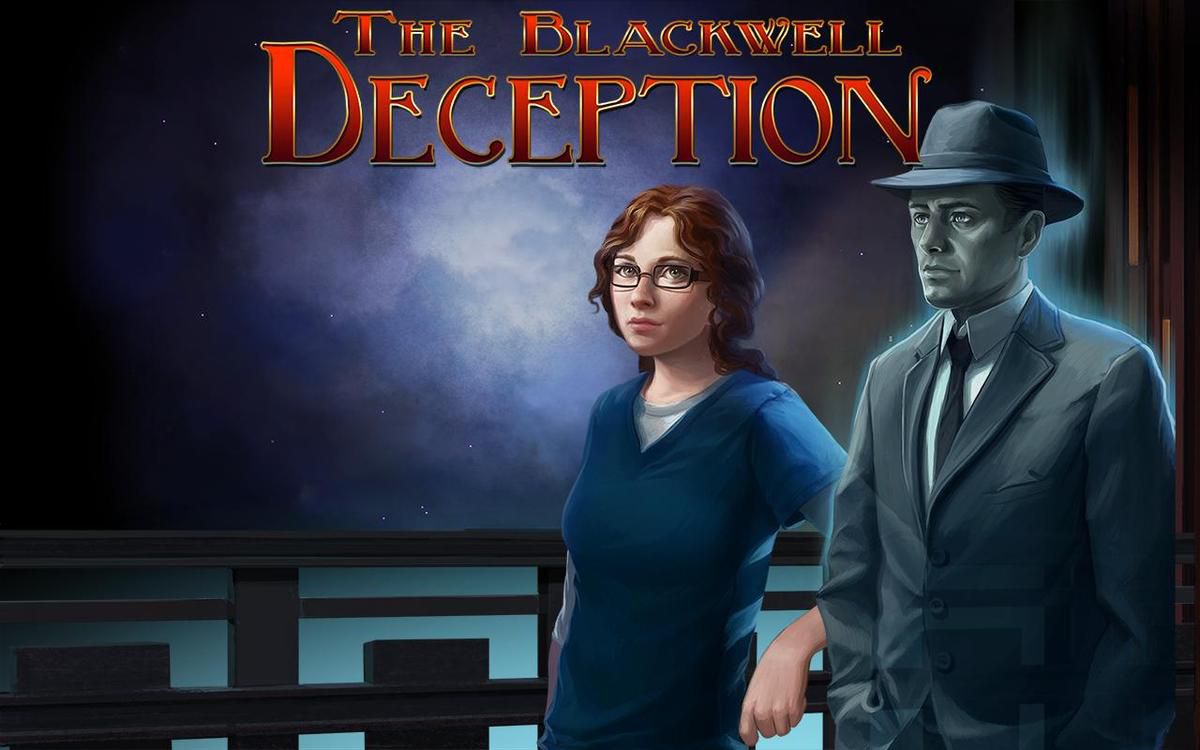
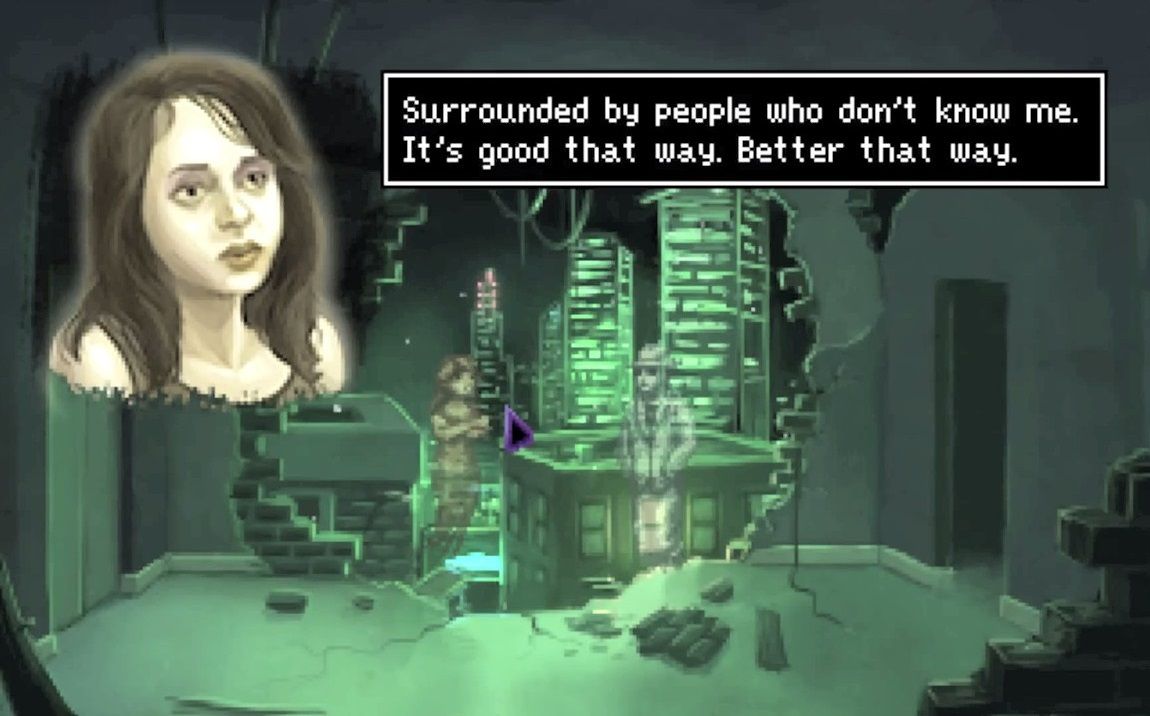
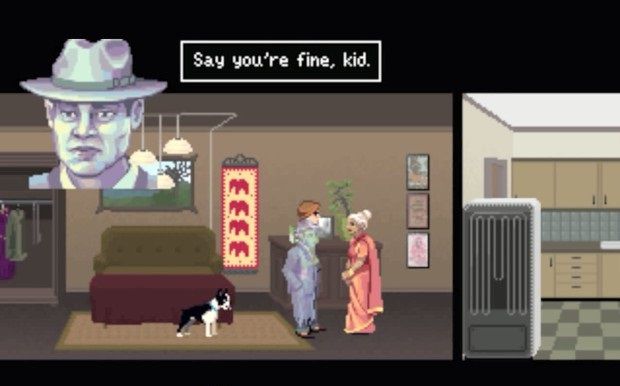



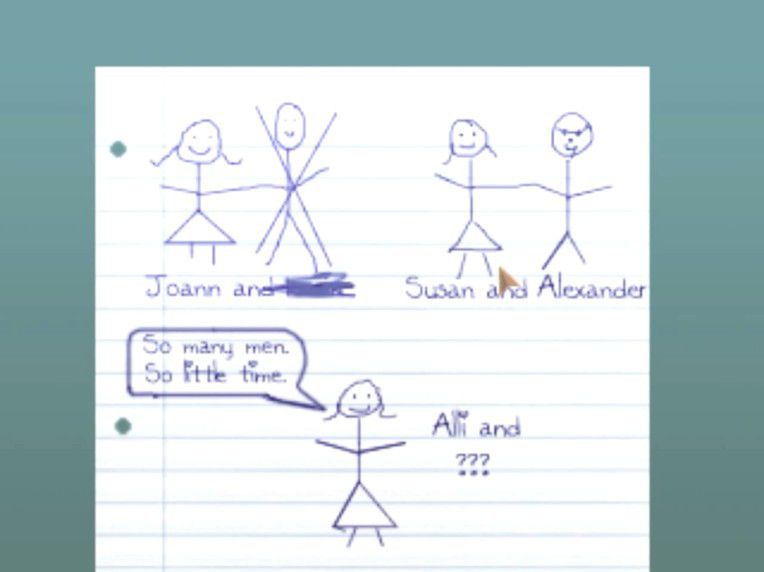
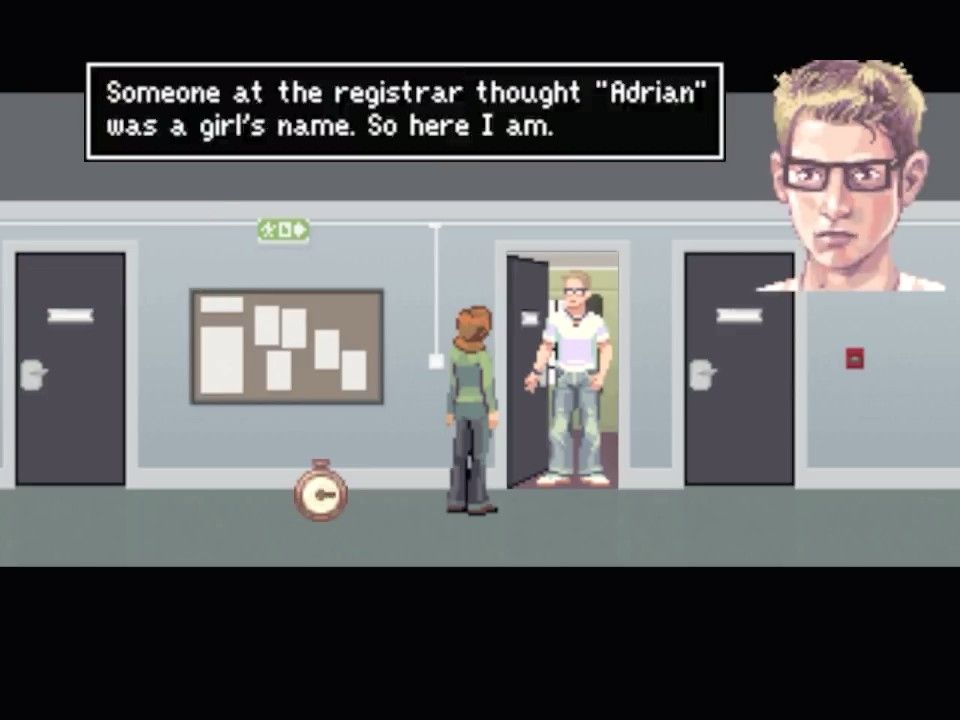
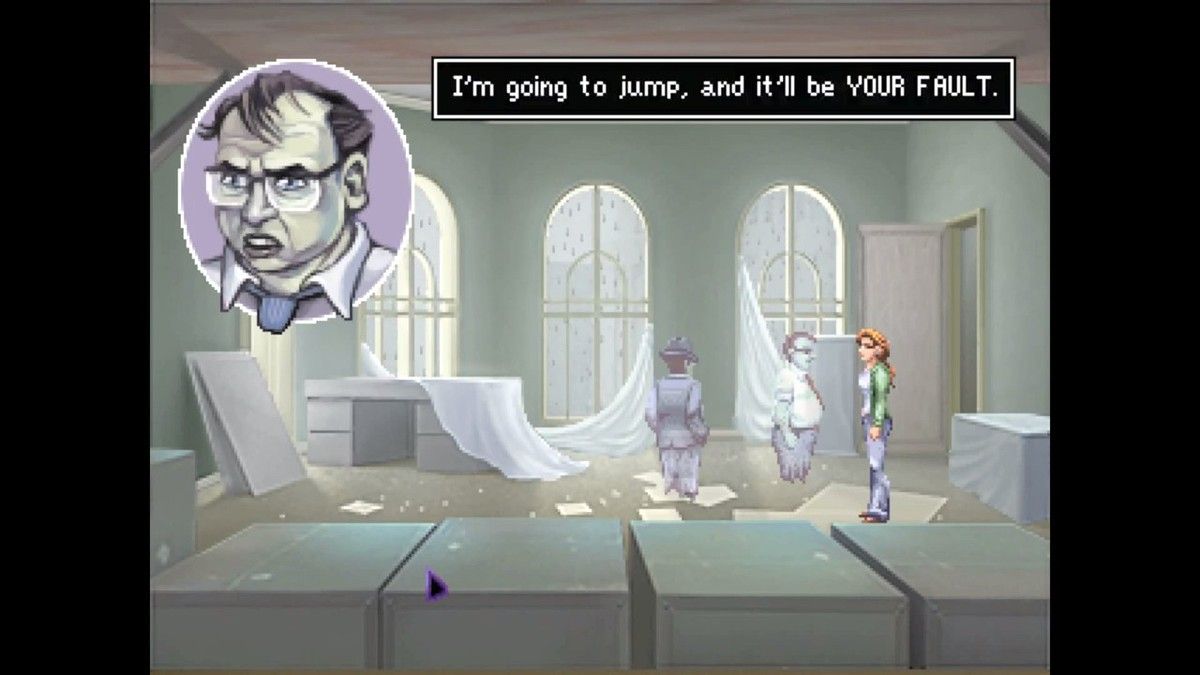


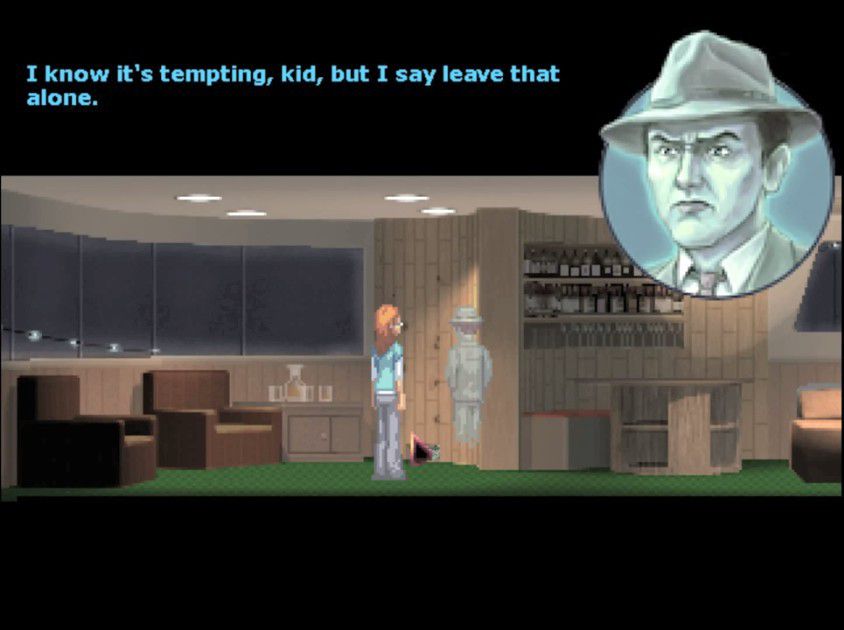
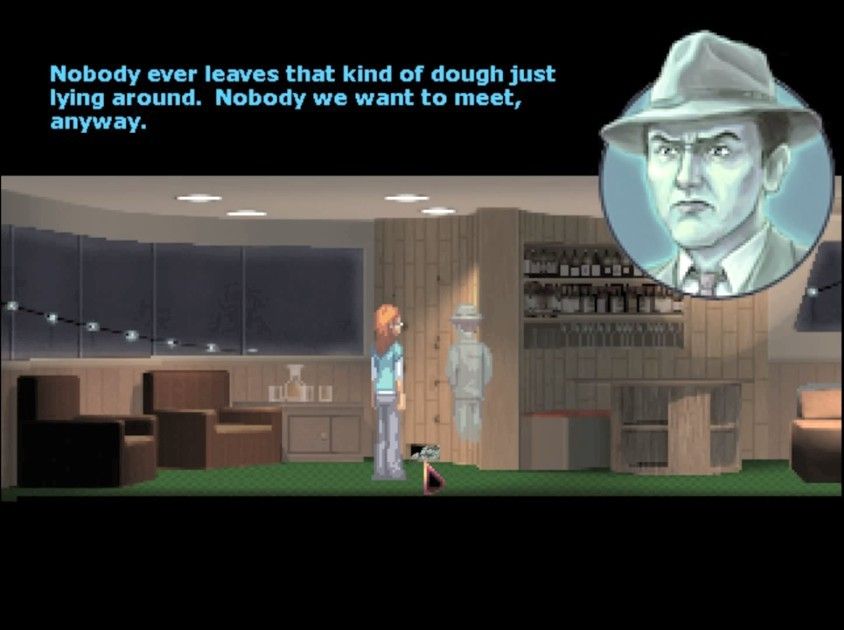



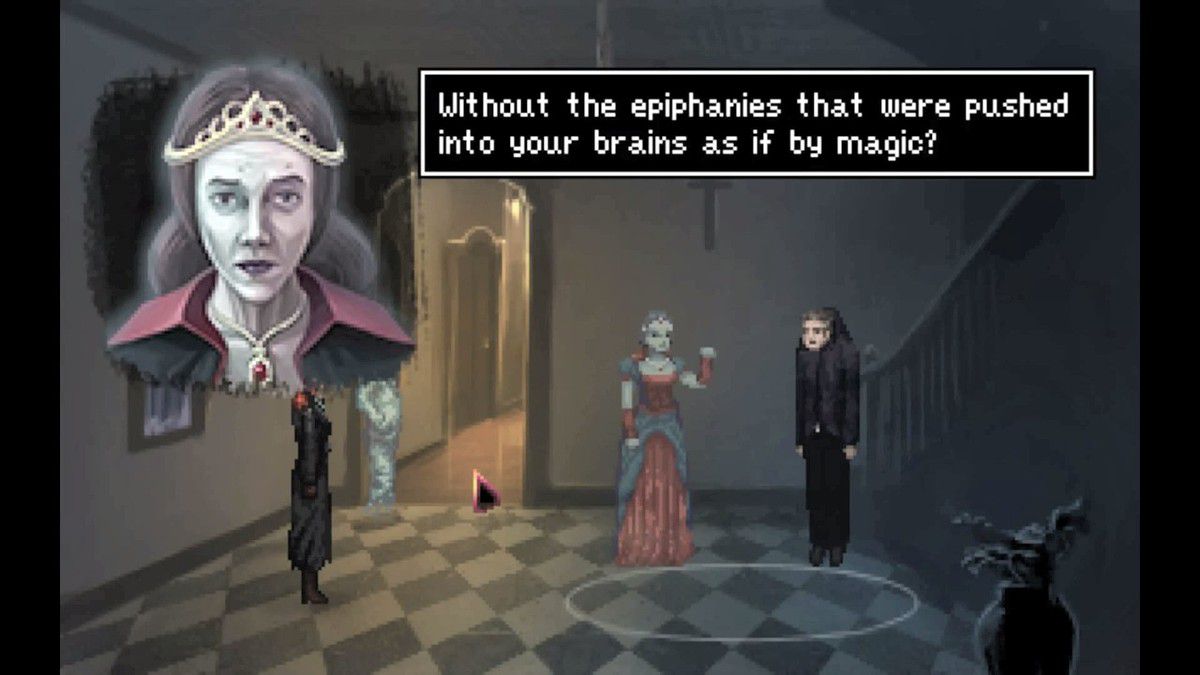

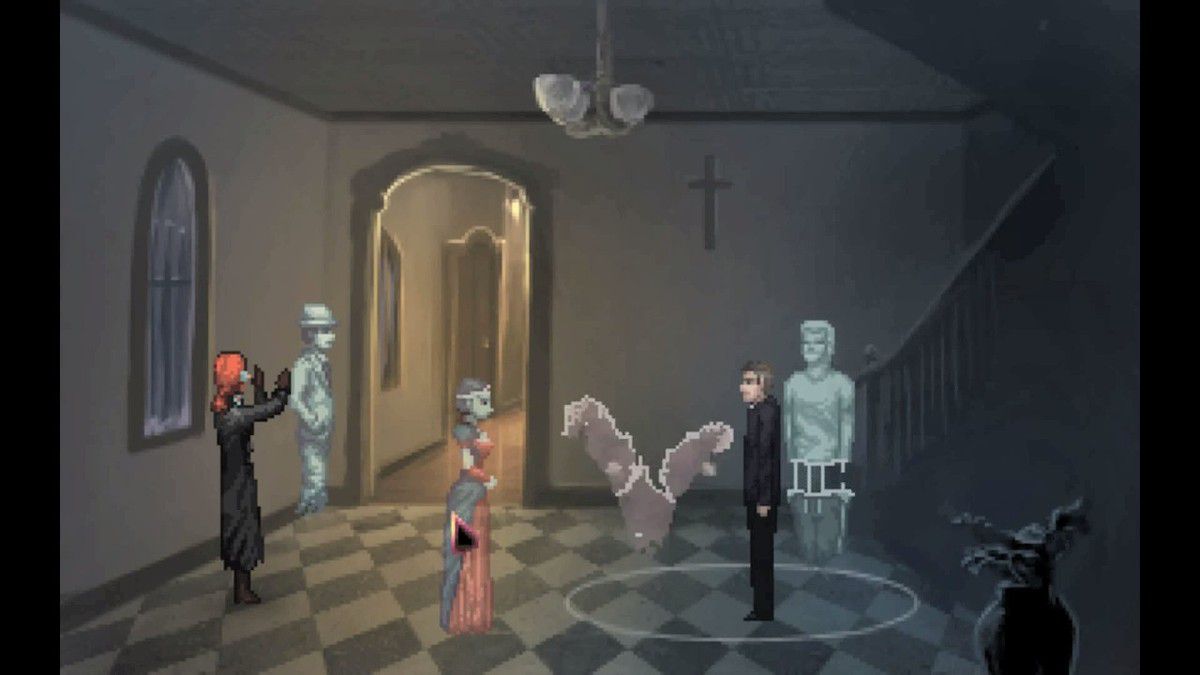
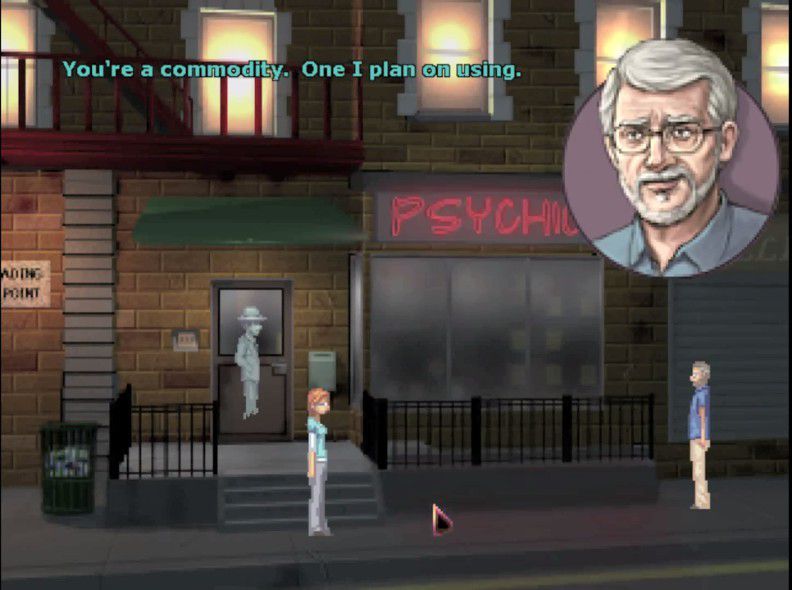
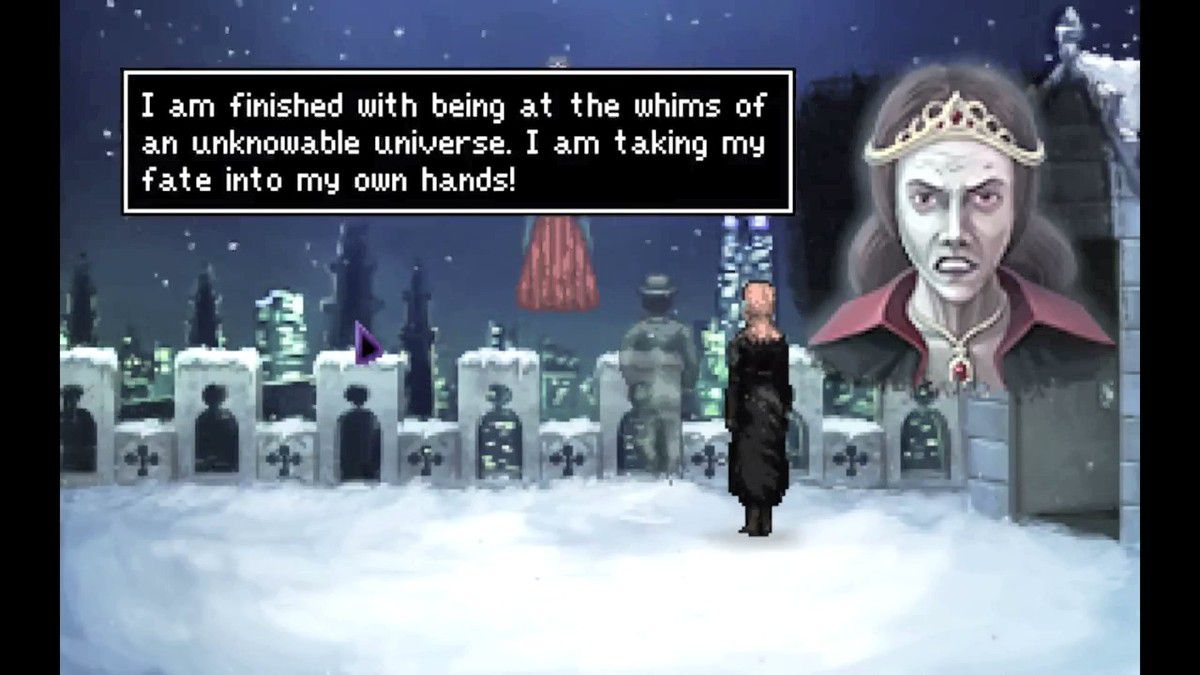


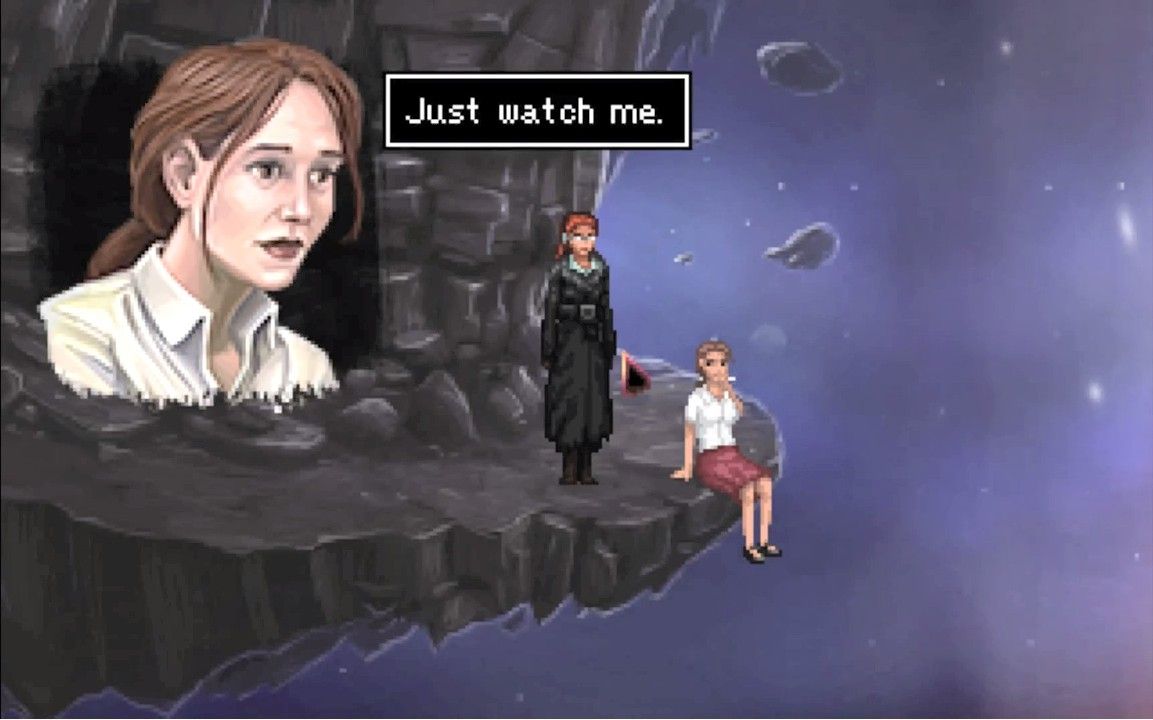
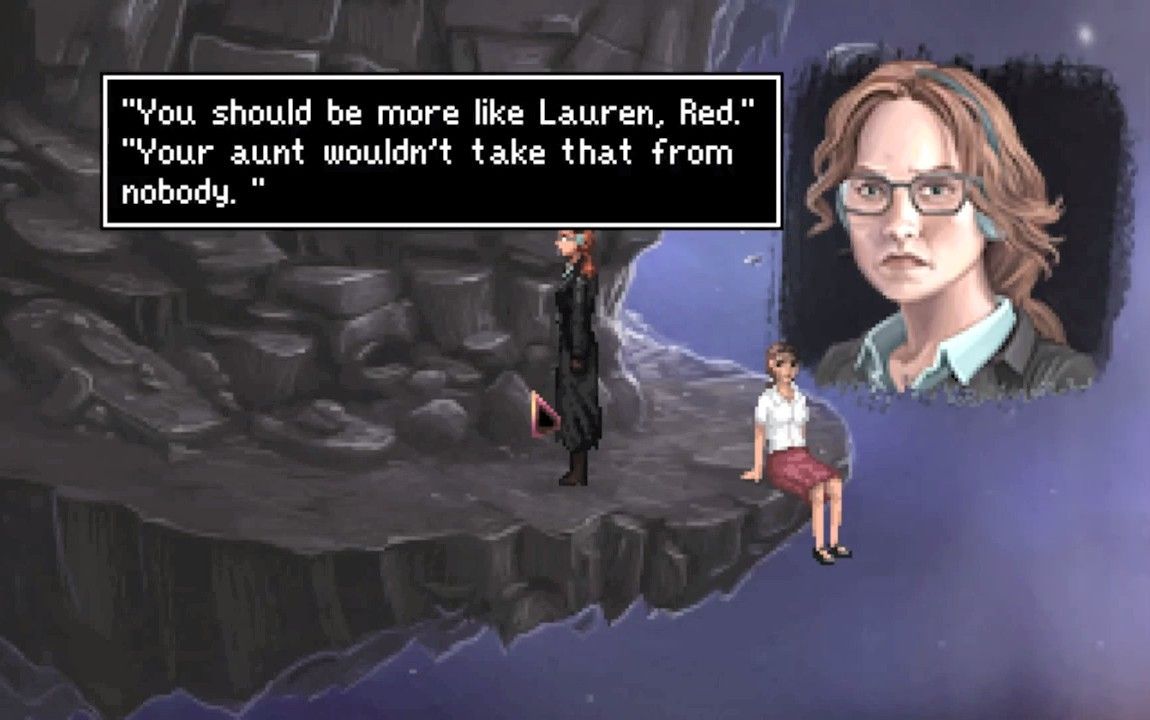
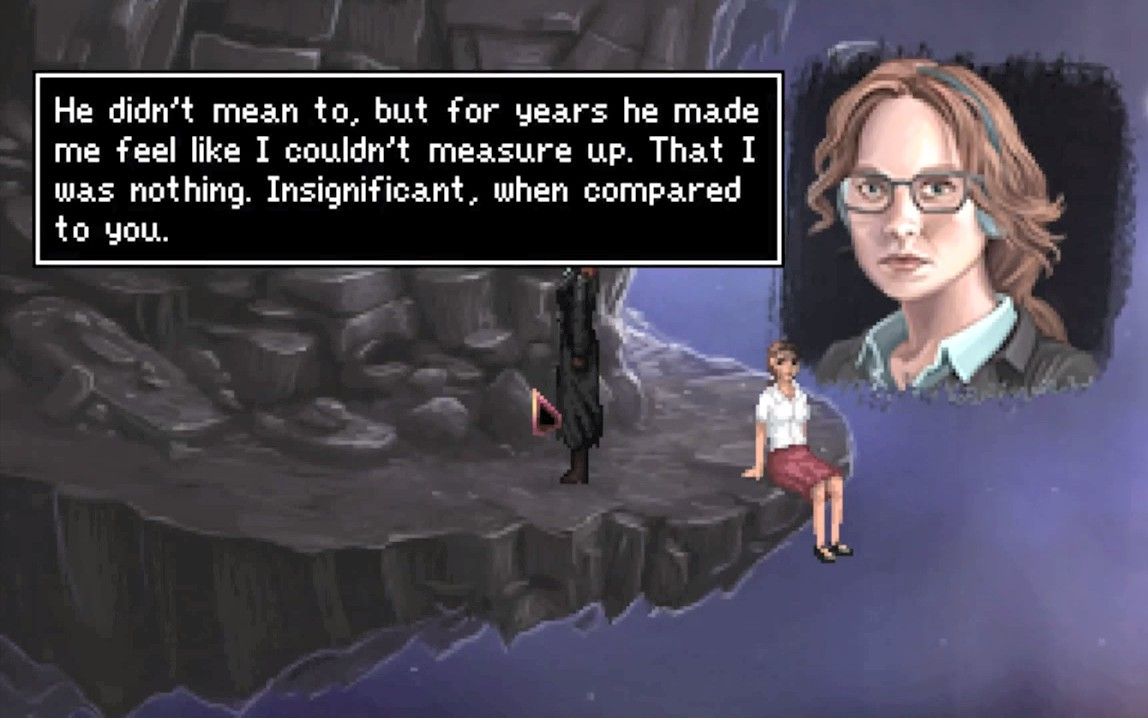


/image%2F1619753%2F20240329%2Fob_945ec9_325.png)
/image%2F1619753%2F20240229%2Fob_ed8d90_28.png)
/image%2F1619753%2F20240207%2Fob_21d540_30.png)
/image%2F1619753%2F20240126%2Fob_8d932a_01.png)
/image%2F1619753%2F20170202%2Fob_40c807_2017.jpg)